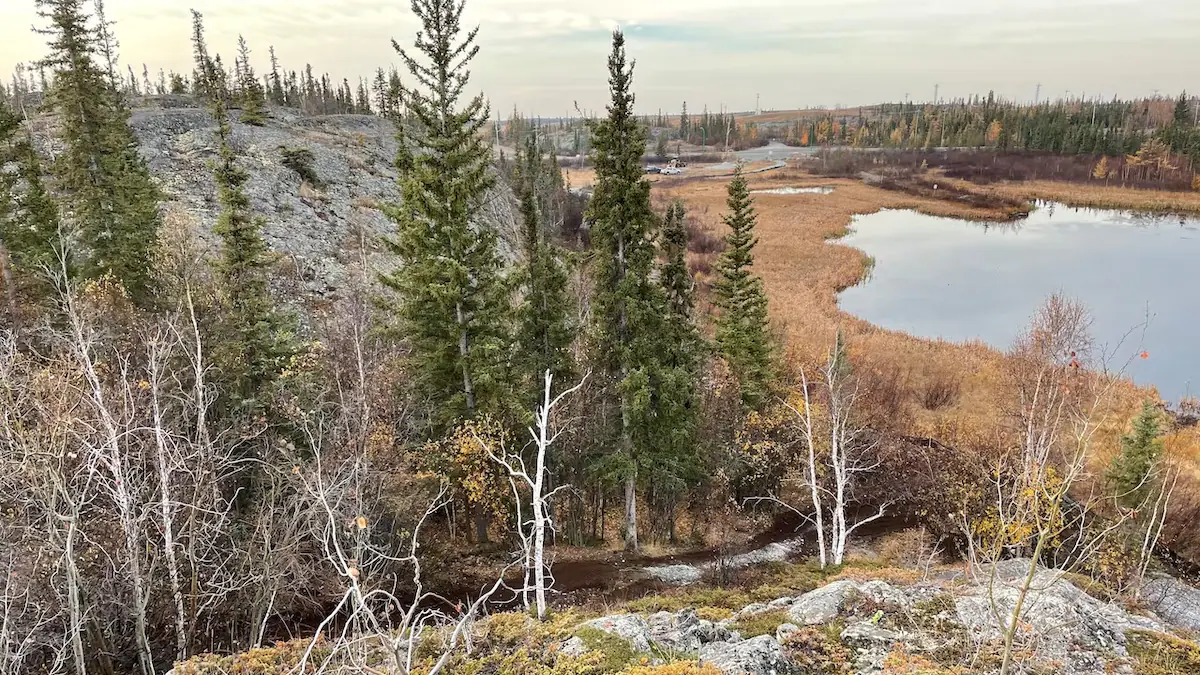Environmental assessment: Yellowknife polytechnic site could move out of Tin Can Hill

Concerns around the proposed site for the polytechnic university campus in Yellowknife aren’t going away.
“There are real practical concerns with the Tin Can Hill site,” said Katrina Nokleby, MLA for Great Slave, in the legislature on Thursday.
Traffic jams and sufficient housing are two issues she said she’s heard from constituents.
She said apartments in her riding have “practically zero vacancy.”
“How do we intend to house students, while also ensuring residents who live in my riding are not pushed out given the plan calls for 50 per cent of students to find market housing?” she said.
She instead proposed the “capital site,” which includes the legislative assembly building and Prince of Wales Northern Heritage Centre
Despite significant opposition, the City of Yellowknife signed a memorandum of understanding last year to have the campus be built in the Tin Can Hill area. Though, that MOU is not legally binding.
Environmental assessment ongoing
Whether the project moves ahead may now also depend on the results of an environmental assessment.
R.J. Simpson, the minister of education, culture and employment, said the second phase of an assessment is currently underway. That second phase includes taking samples throughout the proposed site.
Simpson said the first assessment revealed “moderate potential for contaminated soil or groundwater.”
Pending the results of the second phase — expected next spring — it’ll be up to the polytechnic’s board of governors to decide whether they want to keep the proposed location.
“At this point, engagement isn’t necessary because we don’t even know if that’s going to be the location,” said Simpson. He added that if the board does choose to move ahead, then residents will have the chance to voice their concerns or support through a city engagement process.
“The GNWT and Aurora College will not recommend an application for land transfer if the levels of contaminations pose any potential risks or future liabilities,” reads a Q&A published on the environmental assessment process.
“If the risk assessment concludes that the GNWT and Aurora College should not pursue the Tin Can Hill site, both organizations will work with the City of Yellowknife to explore alternative site locations,” reads the Q&A.
As for the capital site, Simpson said there were concerns that the land available wouldn’t allow for future expansion of the campus.
Related stories from around the North:
Canada: Community in Arctic Canada concerned about the future of Aurora College at Northwest Territories election, CBC News
Finland: Finland’s Centre Party elects new leader, Yle News
Russia: Career diplomat to represent Murmansk region in Russian senate, The Independent Barents Observer
Sweden: Ann Linde named Sweden’s foreign minister in cabinet shuffle, Radio Sweden
United States: Alaska governor accepts reduced dividends, upholds most vetoes, Alaska Public Media



